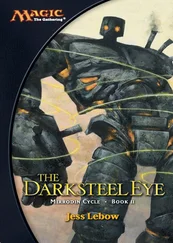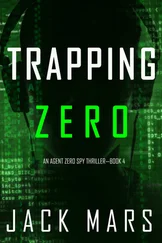“Oh,” Remy said.
“I’m just sorry it took this long for me to come back,” April said, and she reached for Remy’s hand.
“Oh. My God! No.” Nicole leaned forward, her round eyes big with concern. “No, no, no! I told you to take as much time as you needed. We got along fine. And with what you’ve been through… no, it’s good that you didn’t rush back.” She sipped her wine. “Honestly, April, for those first couple of months, there was very little movement anyway. But now… we’re almost back to the number of listings we had before. In fact-” She leaned forward as if spreading rank gossip. “Everything points to an upsurge. An explosion. It’s taking off again, April. It’s about to get white hot.”
“White hot,” the man in the dark glasses repeated, staring directly at Remy.
“The downtime is looking like nothing more than a blip,” Nicole said.
“A blip,” said the man in dark glasses.
“It’s a very exciting time for you to be coming back,” Nicole continued. “There are going to be innovations… partnerships with developers… buying our own stock… options and hedges. Louis says the whole country is about to leverage its best asset.” She paused for dramatic effect. “Our optimism.” Then she sipped her wine and shook her head. “You watch. There will be a feeding frenzy. People will be buying product based on nothing more than models. People will be buying artists’ sketches. Ideas.”
“Ideas,” April said weakly.
Remy took this opportunity to rise. “I’ll bet the steaks are done.” He smiled at Nicole. “And your soy burger.”
April had kept his hand in hers when he stood, and now she squeezed it. And only then did he realize how nervous she’d been, about her performance tonight in front of this woman who must be her boss. He let go of her hand and walked toward the window, thinking again that perhaps life had returned to normal , and that normal was a string of single moments disconnected from one another. No reason to think that anything had ever been different. You worked in an office all week. Your girlfriend’s real estate broker boss came over with her husband and you cooked them dinner. And when it came time to eat, it wouldn’t matter whether you remembered planning the dinner. A meal doesn’t care about the cook’s intention; it just gets eaten. All over the city, all over the country, people rose from bed and scurried and fought and returned at night to sleep, independent of any meaning except the rising, scurrying, fighting, and sleeping. They drove cars made in places they’d never been, used cell phones and computers and a thousand pieces of technology with tiny pieces collected from factories all over the world, in places whose existence they could never be sure of, technology they couldn’t begin to understand. The news played whether they watched it or not. And none of them ever stopped to say: Wait! I don’t understand how this car got here! Why this telephone takes pictures! They answered their phones. Ate their steaks. And if they woke up one morning divorced or with cancer, or if they found themselves at war, they assumed the reality of irreconcilable differences, malignant tumors, premonitions of evil.
This is a life, he thought, smooth skipping stones bounding across the surfaces of time, with brief moments of deepened consciousness as you hit the water before going airborne again, flying across the carpool lane, over weeks at a desk, enjoying yourself when the skipping stopped, and spending the rest of your life in a kind of drifting contentment, slipped consciousness, lost weekends, the glow from television sets warming placid faces, smile lines growing in the glare of the screen. He drained his wine.
It was cool on the balcony. Remy drank in deep breaths of city air. The steaks smelled so good he could barely stand it, and his eyes watered as he reached for the cover of the grill as-
HE SAT in his car, disoriented, wondering if the gaps were somehow widening. Maybe it had to with the car, because the worst skips often occurred like this, when he was on the road, or waiting in traffic, only to look up and find himself in a tunnel or on the turnpike, with no clue where he was going or where he’d been (one time he found himself wet to his waist, reeking of sewage) or when he’d suddenly find himself in an unfamiliar neighborhood, parked outside a building, a notebook open in his lap and binoculars around his neck.
This time, he immediately looked around the car for his binoculars, figuring that he was on some kind of assignment he’d have to piece together later, or simply abandon. But he quickly realized that he had no binoculars and no notebook. He was in the suburbs somewhere. And that’s when he became reoriented and recognized the neighborhood, and Carla and Steve’s big house, in a herd of similar big houses grazing in a cul-de-sac on a gradual hillside, this neighborhood that couldn’t be more than two years old, where, Steve had once confided, there were four basic models, and his – the one with brick façades and pillared front porches – was the most expensive, an extra hundy thou .
Remy checked his watch. Quarter past three. Okay, so what was he doing here at three fifteen in the afternoon? He was wearing khaki slacks and a zippered jacket. He wasn’t in front of Edgar’s house, but four houses down the block. He looked around the neighborhood. For the most part, the lawns were obscenely green, like wet moss; in some of them you could still see the seams where new sod had been rolled out – perfect little patches like felt on a pool table. How many turns of a lawn mower? Four? Five? And yet, in front of some of the houses, this little patch of grass was already beginning to die in places, brown circles like age spots where the roots hadn’t been able to take hold. And there were sickly trees, too, in most of the yards, still young, lashed to stakes and bundled in burlap turtlenecks. Little yellow ribbons were tied around the thin trunks, like scarves above sweaters.
Remy heard the squeak of hydraulic brakes, and watched in his rearview mirror as a school bus stopped at the corner behind him; then came the sigh of the bus door, and Edgar and another boy stepped off the bus, trudging off in different directions, without saying a word to one another, like duelers who forgot to turn and fight. The stop sign came in, the lights blinked off, and the bus rumbled on, Edgar bouncing to the beat in his tiny headphones as he walked on the sidewalk toward Carla’s house on the other side of the street. He looked good, though it was hard to tell in his baggy clothes, the hooded sweatshirt and pants bunched up at the ankles of his floppy tennis shoes. Remy thought he saw Edgar steal a glance toward his car, but the boy just kept walking toward his house as if he hadn’t noticed his dad. He paused at the mailbox, took out some catalogs, and continued to the house, up the steps to the pillared porch, fished in his pocket for a key, put it in the door, and disappeared inside. Remy thought he saw the boy’s face appear briefly in one of the windows, but it was gone too quickly to be sure. A few minutes later the boy came out, wearing the same clothes, and loped off again, without a glance in the direction of his father’s car.
Remy sat there a moment, trying to imagine what he’d wanted to say to the boy, but he couldn’t come up with anything. Hell, that didn’t seem so strange either, now that he thought about it – a father unsure what to say to his boy, haunting his kid’s adolescence. After a minute he started his car and drove away.
SOMETHING FAMILIAR in the flow of people past him, something he recalled from that day, moving against the current, a barely civilized rush on tight stairs, but reversed, like a photographic negative: They were climbing the stairs he descended. “Excuse me. Excuse me,” Remy said, his shoulders turned, hands and arms and knees grazing him as he passed, although no one paid him any attention, either before or after he begged their pardon. They looked past him with pleading eyes, their hands high, as if ready at any moment to begin pushing to escape this subway station. They were intimately familiar, these faces, with their constrained lust for escape, barely held panic, an underground face, an elevator face, a train station face. He’d seen people hold their breath in crowds; now he saw it again, as they came up, clutching their handbags and briefcases and shopping bags like they were babies, pulling at their actual kids’ arms like luggage on the way to a late flight, muttering Come on come on come on , and craning their necks to see what was taking so long at the top of the stairs, where others emerged onto the rain-spackled street and… Air! Did any city value air more than this one now? Near the bottom the faces were more frantic; tears streamed down a woman’s face as she held her little pigtailed girl high against her chest. “Please,” was all she could manage. “I have a child. Please.”
Читать дальше












